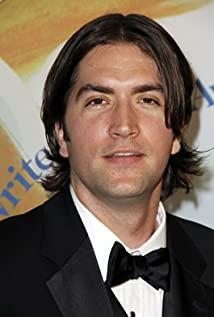author has no intention to advertise for a treasure, let alone cheer for "The Martian". The above sentence shows and only shows that an appetizing and distinctive sci-fi movie made it to the theaters in our country in time.
How is The Martian different? A lot of reviews mention the lack of villains in The Martian, but that's probably not the crux of the matter. Generally speaking, hard sci-fi movies are often "stretched" when explaining technological issues, and there is no need for villains to support the main body of the story. And space disasters in particular. It is often based on the conflict between people and the environment, needs and scarcity, and based on the unmet basic physiological needs of people.
What's really remarkable is that there are no dead people in The Martian. The undead in sci-fi movies means that the characters are unlikely to have explosive emotions, which means that the whole film will likely be bland. However, "The Martian" cleverly solves this problem with the character of the protagonist, completely blocking the fear and horror, full of jokes throughout, showing a unique sense of comedy. Its emergence not only means the revival of mainstream hard sci-fi comedy, but also means the re-emergence of an uncommon scriptwriting concept and dramatic conflict construction method.
While weakening death and the fear of death, "The Martian" also made drastic improvements to the original work in the script. This is the inevitable result of the imaging of literary works. After all, it is difficult to make all the The complex problems in the original work are directly manifested. In the process, some scientific and geeky plots were weakened, while other visual and verbal elements were enhanced. I have to say that this improvement does have a big disadvantage, that is, it greatly weakens the protagonist's fun in solving problems, and this fun is the biggest source of pleasure when reading the original novel. More importantly, the rational, optimistic, and non-emotional qualities hidden behind this sense of pleasure—that is, the humanistic spirit of the Western society that is reflected in the protagonist himself—has also weakened.
Still, "The Martian" stands in stark contrast to Christopher Nolan's "Interstellar", which seems to be hard and winding, but is actually full of cheap and moving pseudo-mythical works. In other words, the protagonist's funny ratio indeed weakened his rationality to a certain extent, making him look nothing like a "Pride of Heaven" who can represent rationality, but his foul language and words broke the mystery: Science the shit out of this. (Solving problems with fucking "science"). Compared with Alfonso Cuaron's "Gravity", every difficulty and node of "The Martian" is not simply "hard work" and "not giving up", but relying on brains and knowledge. Of course, it turns out that "The Martian" is not so radical and rational to the point of being incomprehensible and unbearable. Therefore, if there is a chance for human beings to put gold-plated discs into the universe next time, it is better to engrave a piece of "The Martian", because it is simply a propaganda film of human civilization. It is both rational and emotional, and it may really make aliens cry twice. Tears drop, and two big teeth drop out of laughter.
The prominence of technological characteristics and optimism has not diminished the shock of "The Martian" as a sci-fi movie; stepping back 10,000 steps, even if it is really a little bit, "The Martian" is a kind of "Mars rescue". "Geek Spirit" eerily returns to the grand and profound sci-fi movie motif, that is, the constant and strong survival instinct. In the discussion of this issue, director Ridley Scott is definitely a master - as early as the 1980s, one of his "Blade Runner" used a philosophical way to explain the desire for survival very thoroughly. "The Martian" and "Blade Runner" go hand in hand, and even go hand in hand. The two are one soft sci-fi, one hard sci-fi, one serious, one funny, one philosophical speculation, and one scientific creation, so for Scott himself, "Mars" Rescue is undoubtedly a very useful expansion and attempt.
In addition to the movie itself, we also have to mention the original book of The Martian. Being able to escape the inherent mode of science fiction movies to a certain extent, the original novels obviously play a great role. The reason why this novel has been popular for a long time and has been on the major book lists for a long time is not only because of its compact plot and boundless brain holes, but also because of this The way of writing science fiction has hardly appeared before, and it is a new experience for readers. In addition to the extensive application of scientific and technological knowledge, there is also a tendency to (human) collectivism, or cosmopolitanism, in the original work. Whether it is microscopic (bacteria) or macroscopic (human beings), whether it is on the ground or in space, it is always a group that completes the mission in "The Martian", they transcend geographical differences, transcend the boundaries of race, although there is still a little behind Negligible benefits exist. It regards the whole world as a whole, and all countries and individuals pay attention to one event and work together to face the challenges of deep space and the destiny of mankind. From this aspect, the appearance of Chinese elements in the film is not only due to the author's praise for Chinese technology, but also because China and its technological development are subordinate to the whole world.
Interestingly, on the other hand, the adaptation of the original book by Hollywood directors and screenwriters is completely reversed - in addition to highlighting the protagonist's individualistic complex (such as the "Iron Man" near the end), the screenwriter also focuses on the entire ending. Focus on Captain Lewis alone, and let her go to rescue the protagonist herself. Taken as a whole, this is equivalent to the original author finding a point of convergence between an individual heroic idealism and a collectivist idealism when writing, and Hollywood reinforces this trend twice, once again making the whole film A certain balance has been found between the individual and the collective. Because of this, some commentators have commented that "The Martian" is by no means simply a space version of "The Martian", because "The Martian" is a typical "one-man battle", while "The Martian" lacks. Neither can anyone. In essence, although the core of "The Martian" can be said to be a reaction to Hollywood movies, its form is Hollywood's fusion and instigation of the original work, which is also more than "Interstellar" and "Gravity". The root cause of such new sci-fi films appearing to be more dynamic.
It is true that "The Martian" still has many regrets in the process of adapting its literature to a film. For example, the screenwriter has deleted many interesting and useful plots, especially how the protagonist uses his only "medieval" tools and 21st century brains in the last paragraph. Escape the sandstorm for a while. In the original book, this passage is not only interesting, but also an important literary symbol. The rollover of the Mars off-road vehicle in the final stage of the original work could have been an important node that not only caused a huge psychological blow to the protagonist, but also caused a huge psychological shock to the audience, but unfortunately it was completely deleted. Perhaps it is because of these that the whole film is more compact and lacking in strength.
Creatively, the original author is probably a little smarter (or braver) than the screenwriter - in the book, the story ends after everyone has boarded the Hermes. Did they make it back to Earth safely? no one knows. The original would rather give you unlimited reverie. Moreover, the following things are really not important. After all, the protagonist is completely worthy of the title of "human". The game played by the geek protagonist on Mars is also announced with a foul language "Get out of Mars". ended.
View more about The Martian reviews











